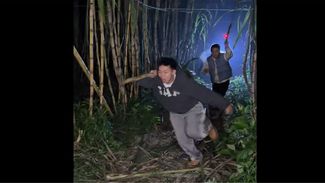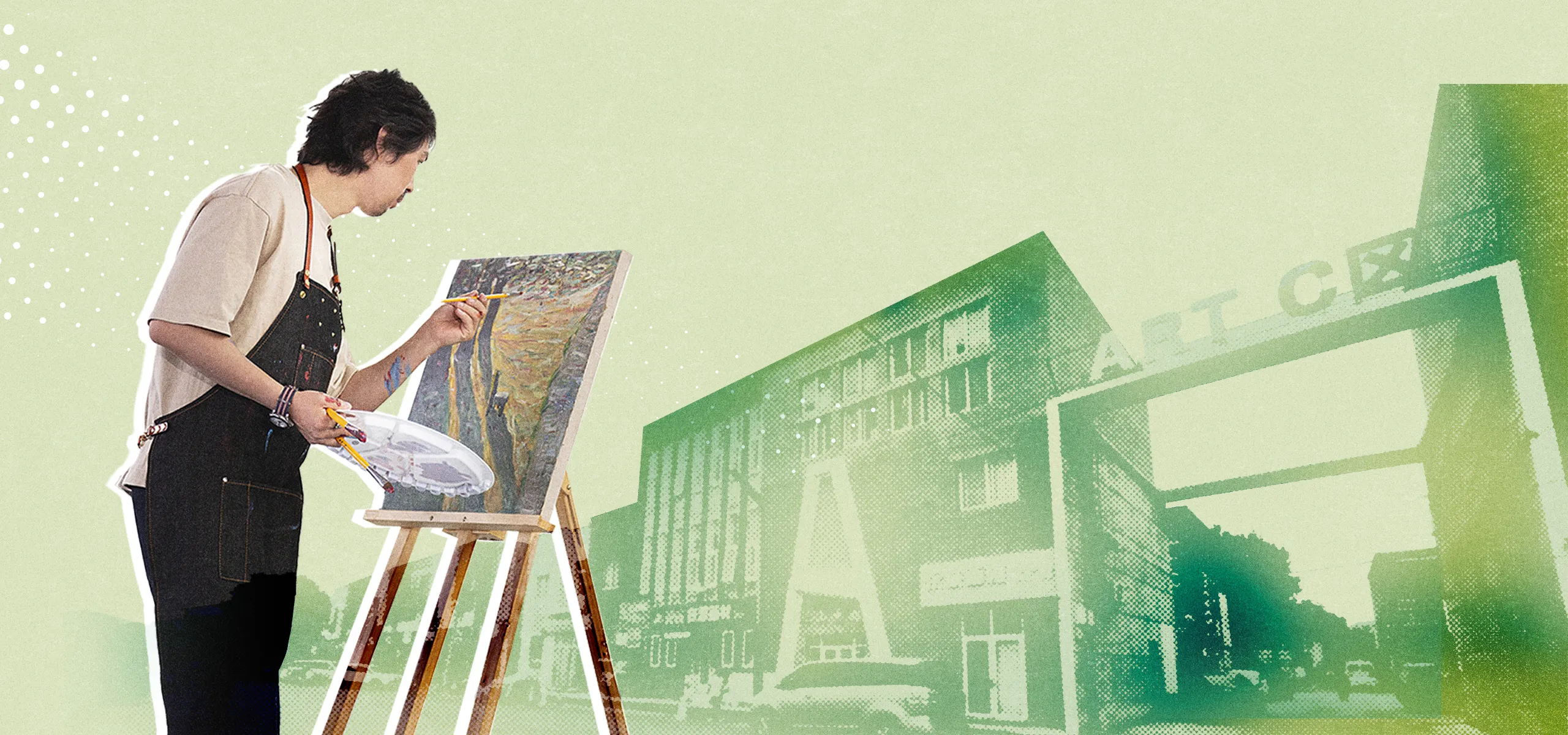China’s suburbs, previously considered a zone for free-flowing creativity, are facing fresh challenges amid rising tourism, gentrification, and increasing rents
Creative clusters typically thrive in large urban metropolises with abundant resources, yet like digital nomads, some artists choose to work in suburbs or smaller cities for more creative freedom and lower operational costs, forming unique artistic communities outside the urban center. However, these previously lesser-known destinations have attracted an influx of tourism and real estate developers, partly due to their popularity among artists in the past decades.
In this episode, we invited a film producer and a ceramic artist to share their observations of how these artistic communities have evolved, and how they have built careers far away from the city.
Guests:
Guo Xiaodong is an independent film producer and editor, based in Songzhuang in suburban Beijing.
Ryan LaBar is an American ceramic artist who has lived in Jingdezhen, Jiangxi province, for over nine years.
Subscribe to the Middle Earth Podcast: Apple Podcasts | Spotify | Google Podcasts | Amazon Music | Overcast | RSS Feed
The following are excerpts from the transcript of the episode (edited for clarity):
05:04
Aladin: What’s life like as an artist working remotely? Is it as romantic as some might imagine living with a commune of artists with ideas flowing around?
Xiaodong: It used to be like that 10 years ago, but everyone has their own business to run now. We spend less time meeting with other artists than before. But it is still very different from the city center. We have more artists than local villagers. Everyone is different; they are making different art. My work is quite far from the film industry in China. The reason we are still here is we can meet filmmakers, other producers, and technicians who work on independent film projects. Otherwise, we can make films from anywhere in the world.
Aladin: Ryan, could you tell us about Jingdezhen, where you are based, and what the community of artists is like there?
Ryan: Jingdezhen is an interesting city. It’s changing dramatically year by year. When I first came here, it was a bustling city that I considered a little bit chaotic, and the traffic was all over the place. Looking at the city, it’s now become a planned city where it’s ordered. There’s less car honking; there’s less crazy, chaotic energy. And it’s laid out for a tourist market. So, people get off the train and go to this community I’m in, Taoxichuan Ceramic Art Avenue, which is the center of the city. And they go to the Imperial Kiln Park, which was the old center of the city right on the river where the first imperial ceramic objects were made for the imperial court in Beijing.
There is an energy that attracts people. When I first came here, there was a thriving resident artist community, and that community has just grown and grown. It was paused during Covid, but now it’s full-on. International artists are coming from all over the world to work here for a few months. There have been a lot of domestic artists since Covid, finding their way to the city.
09:50
Aladin: What inspired this episode was when I took a small vacation in Dali, Yunnan province, I was surprised to see so many people there trying to find themselves and be creative while living off cheap rent. Are there other famous places in China known for being hotspots where creative communities congregate and work?
Xiaodong: Like you mentioned, Dali and Lijiang (in Yunnan) are touristy places, where artists also choose to live: from musicians, and painters to filmmakers. Some have been there for almost 20 years. Tongli in Jiangsu province is another small ancient town transformed into a tourist destination, not far from Shanghai; the living cost there is also low. On Hainan Island, there’s the Houhai village, a trendy place where young people have short vacations and is known for its surfing community.
13:00
Aladin: I sense that the formula was basically cheap rent plus artist equals interesting community. Ryan, do you think that would be a correct assessment?
Ryan: Yeah, I do think that’s a correct assessment. However, I think that once the artist community starts to blossom, business follows: the bars, coffee shops, and places where artists can congregate to share ideas and projects. As a result, the landowners see an influx of people who are interested in renting. And with rental demand comes increased prices. And when increased prices hit a certain level, developers start coming in and thinking, well, we can start building large-scale housing projects. The rent would increase even further.
Xiaodong: The rent has tripled compared to when I first moved to Songzhuang eight years ago. We have to adapt to the living costs of today. It was not as carefree and easy as before, when we could live out weeks without having to think about what to do next. Now we have to plan for the year. The way of living and the way of working changed a lot. We spend less time on social gatherings—before, we would spend the whole night singing, dancing, and meeting 20 to 30 new people. To them, Songzhuang was not commercial at all, and we were all free-spirited artists hanging out together. But now people come to Songzhuang for professional meetings or collaborative work projects.
18:40
Aladin: If you live in a city center, you would have to suddenly take more projects to keep afloat, even though that might not be your passion. The fact that you live in Songzhuang allows you to focus on the things that are more important to you.
Xiaodong: Yes. We resist standardization. Because filmmaking is finding a unique way to express your conception of the world. There is no way to standardize that. If it’s a real business model, we’d better make everything the same, tell the same story, repeat and repeat again. So that’s why we find this balance to live in a very low-budget way, but not make films in a low-budget way, and to still make films.
Ryan: Jingdezhen is a good base to establish your art and communication with your medium, and to get into a market, learning how to sell and how to develop an audience. You can do that relatively inexpensively. You start with making an object that is easy to make and mass-produced to a certain extent to where you can pay your rent. And then as you hone your dialog with the material, you become more and more fluent with it, and you can make more elaborate pieces. At some point, you might get sick of tradition and utility and want to push the ideas beyond that, and then you’re creating your own market.
30:38
Aladin: How do you see the upcoming years? Will you stay in the same place or think about moving away?
Ryan: I’d like to stay where I’m at, because I was here since the beginning and I feel like my roots have penetrated the soil long enough. I might change my studio from a working space into a gallery space just because of the crowd. The market has changed, where now there are a lot of people outside my front door and I’m closed to the public, so it doesn’t really make sense. Also, it’d be nice to move out into that romantic countryside area where I can work more freely without distraction. And that potential still exists in Jingdezhen. And I’m looking forward to how Jingdezhen evolves and how I evolve with it. I think that there’s a lot of freedom to change and to start up here and to live here
Xiaodong: I’m always trying to find somewhere else because we feel insecure. There’s a lot of agitation even among our communities. I’m trying to find somewhere we can create something altogether from zero; that is if we can have 10 or 20 years, but we are not sure because I think China changes too fast. Every five years is already a new era. I think it’s very difficult to move somewhere else and create our own space. I’d say we will stay here in Songzhuang but keep an eye open.









